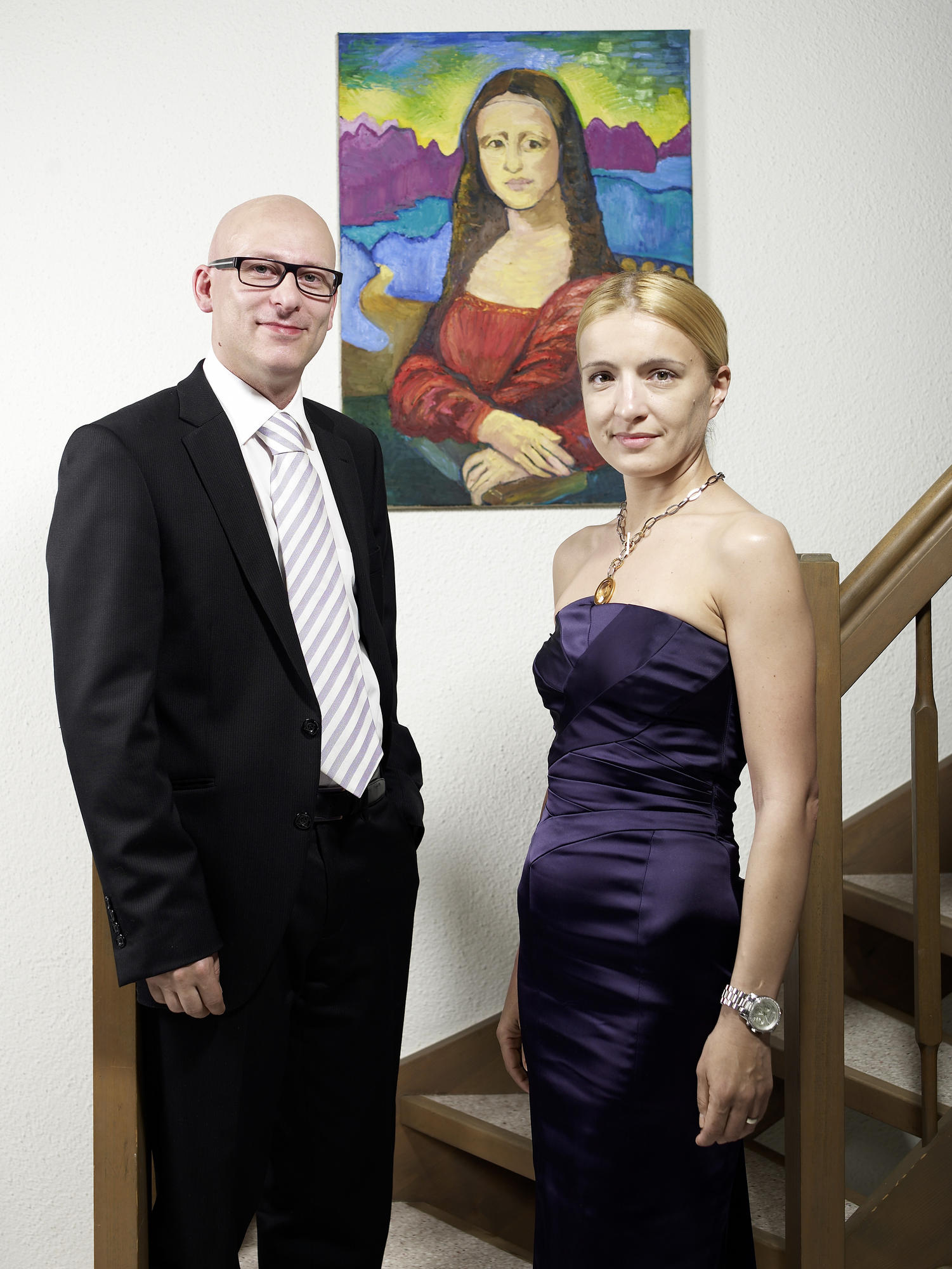New equality chief faces overflowing in-tray

Switzerland’s equality chief leaves her post on December 31. On her successor’s to-do list are the continuing female-male wage gap and the problem of domestic violence.
After 16 years at the helm of the Federal Gender Equality Office, Patricia Schulz is taking up a job at the United Nations. She will be replaced by canton Vaud’s head of equality, Sylvie Durrer, on March 1.
Ahead of her departure, Schulz told swissinfo.ch that gender equality in Switzerland had improved over the past two decades. In particular, “great progress” had been made against domestic violence following the creation in 2003 of a specially dedicated service under the Equality Office.
In Switzerland 9,761 people were victims of domestic violence in 2009, of which 771 were children. Domestic violence is the most widespread human rights violation, according to the international campaign, “16 days against violence against women”, held earlier this month.
Schulz said legislative changes at the federal level meant domestic violence was now more commonly prosecuted and offenders could be removed from joint homes.
“What used to be a private concern has become a public and political theme and much less taboo,” she said, noting that the state now recognised it as a phenomenon that should be addressed.
“Statistics are finally available, police have been trained, nearly all cantons have structures in place for dealing with victims and offenders.”
The cabinet is also currently implementing a series of new measures against domestic violence. But Schulz warns the problem will continue for a long time because it is “deeply rooted” in a lack of equality. “The spiral of violence is a relationship mechanism rooted mainly in a desire for domination,” she said.
In her new job, Schulz will become the first Swiss to be appointed as one of 23 members on the UN Committee on the Elimination of the Discrimination against Women, which oversees implementation of the 1981 convention of the same name.
“Weariness”
Assessing the work by the Federal Gender Equality Office under her care, Schulz says equality has been anchored in the law but is not always present in daily life.
“Educational choices remain fairly stereotypical, salary inequalities remain, access to executive positions has not improved greatly and political representation has stagnated or fluctuates,” she said.
As such, the UN Committee on Economic, Social and Cultural Rights has expressed concern over a widening salary gap in Switzerland (with up to 70 per cent of women receiving low salaries). So far the Federal Gender Equality Office has not been able to reduce the 20 per cent average difference in salaries between men and women.
For Schulz, the issue needs to be better understood. “On the one hand, our media are very focused on immediate events, and equality is a long-term problem. And there may be a weariness about the issue, because the same problems have persisted for a long time without being resolved.
“But the challenge for us is to find new ways of communicating to revive people’s interest.”
Reversing tradition
The new office head, Sylvie Durrer, who currently is in charge of the Geneva institute for gender studies, describes herself as “a person with conviction”.
“We have centuries of inequality behind us and it will require patience and hard work, discussion, explanation [to reverse this]. Some people are afraid of changing tradition, but it’s a risk worth taking: we must be audacious for equality, for the good of men and women,” said Durrer.
While Schulz is a lawyer, Durrer is a linguist. So, does this mean that the work of the Federal Gender Equality Office will be limited to terminology? Durrer says her first task will be to enforce the law on equality in employment and that terminology will be one lever for change.
On a positive note, “women today have access to all training and all professions” and there has been a strong percentage of women studying at university in recent years, she noted.
One of Durrer’s major concerns is the ongoing struggle to balance work and family life.
“I have an overall concern that our society is overlooking female potential in the economic field or male potential within the family. That’s a loss for individuals and it’s damaging to society,” she said.
“Ultimately, the goal is that gender does not play a deciding role.” That is still long way off but we must go forward and work towards it, added Durrer.
In October, a major report on gender equality ranked Switzerland tenth in the world, up three places from last year.
The Gender Gap Report 2010 by the Geneva-based World Economic Forum, put Nordic countries in the first four positions, with Iceland topping the list.
Switzerland is preceded in the rankings by Lesotho and the Philippines.
The study looked at equality issues including salaries, access to education and training and political participation as well as health and life expectancy in 134 countries.
Switzerland was found to have improved as far as women’s involvement in politics is concerned, but still has a wage gap, and women are poorly represented in higher positions in the economy and management.
The information was collected in July, before the Swiss parliament elected a fourth woman to the cabinet, giving it a female majority for the first time.
Switzerland took part for the third time in the international campaign of “16 days against violence women” from November 25-December 10.The campaign was launched in 1991 by the Women’s Global Leadership Institute.
In 2003, the cabinet created the service against domestic violence in a move to strengthen and build on its current measures, particularly in violence against women.
The ex-Green parliamentarian Cécile Bühlmann has said it is one of the main causes of death in women aged 15-44.
Using new police statistics, the government has calculated that in 2009, 9,761 people suffered from domestic violence, of which 771 were children and of which 8 died).
Around 20 steps were taken by the cabinet in 2009 and are being implemented.
(Translated from French by Jessica Dacey)

In compliance with the JTI standards
More: SWI swissinfo.ch certified by the Journalism Trust Initiative













You can find an overview of ongoing debates with our journalists here . Please join us!
If you want to start a conversation about a topic raised in this article or want to report factual errors, email us at english@swissinfo.ch.